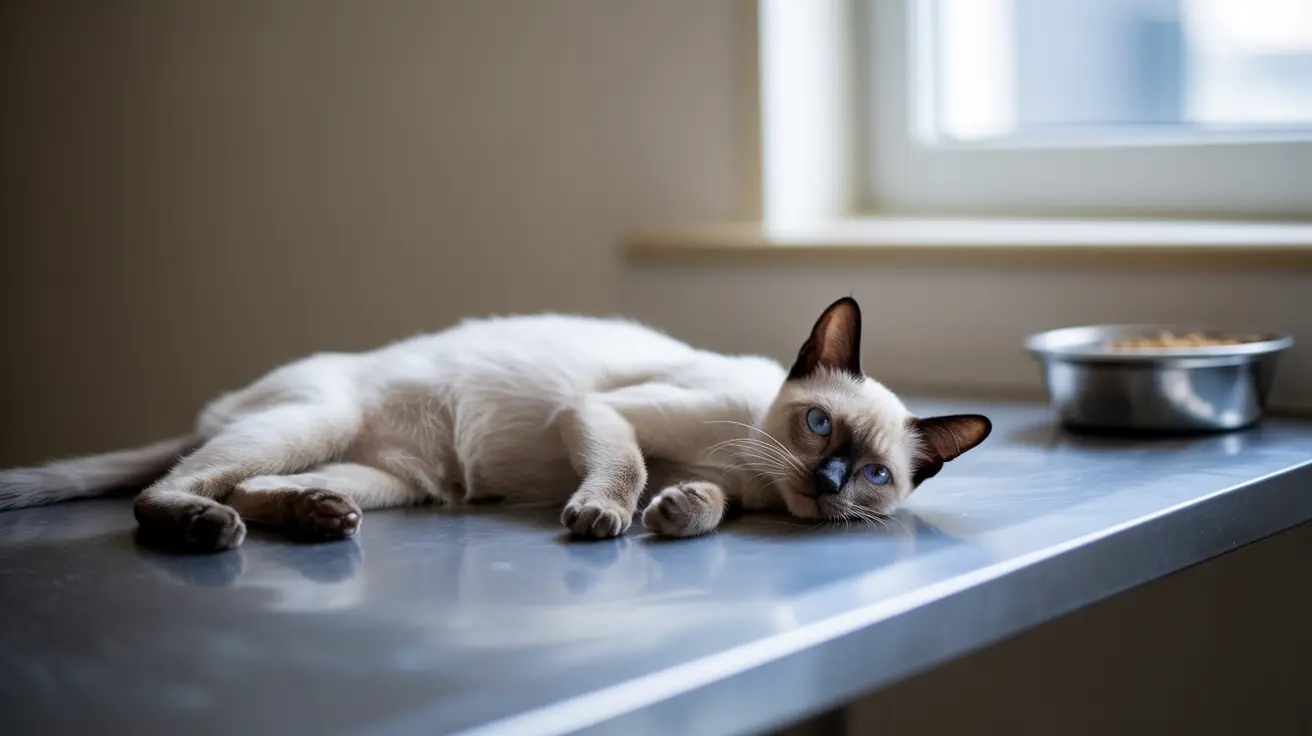Learning that your cat has liver failure can be devastating. As a pet parent, understanding the signs, progression, and management of feline liver failure is crucial for making informed decisions about your cat's care and quality of life. This comprehensive guide will help you recognize the symptoms of liver failure in cats and know when it's time to have difficult conversations with your veterinarian.
Understanding Feline Liver Failure
The liver is your cat's largest internal organ and performs numerous vital functions, including detoxification, protein synthesis, and nutrient processing. When this essential organ begins to fail, it can lead to a cascade of health issues that significantly impact your cat's wellbeing. Liver failure can develop gradually or suddenly, and early detection is crucial for the best possible outcome.
Early Warning Signs of Liver Failure in Cats
The initial symptoms of liver failure can be subtle and easily overlooked. Watch for these early warning signs:
- Decreased appetite or complete loss of interest in food
- Lethargy and unusual tiredness
- Increased thirst and urination
- Vomiting or diarrhea
- Unexplained weight loss
Advanced Symptoms of Feline Liver Failure
As liver failure progresses, more severe symptoms typically emerge:
- Yellowing of the eyes, gums, or skin (jaundice)
- Fluid accumulation in the abdomen
- Neurological symptoms like disorientation or seizures
- Excessive drooling
- Blood clotting problems
- Behavioral changes
Common Causes of Liver Failure
Several factors can contribute to liver failure in cats:
- Fatty liver disease (hepatic lipidosis)
- Infections (viral, bacterial, or fungal)
- Exposure to toxins
- Cancer
- Certain medications
- Genetic predisposition in some breeds
When to Consider Euthanasia
The decision to euthanize a cat with liver failure is deeply personal and should be made in consultation with your veterinarian. Consider euthanasia when:
- Your cat shows severe neurological symptoms
- They stop eating and drinking despite intervention
- Quality of life is significantly diminished
- Pain cannot be effectively managed
- Treatment is no longer helping
Frequently Asked Questions
What are the early signs that my cat is dying of liver failure?
Early signs include loss of appetite, lethargy, vomiting, increased thirst, and weight loss. These symptoms may appear gradually but should not be ignored.
How can I tell if my cat has advanced liver failure or needs urgent veterinary care?
Seek immediate veterinary care if you notice jaundice, severe lethargy, neurological symptoms, or significant behavioral changes. These signs indicate advanced liver failure requiring urgent medical attention.
What causes liver failure in cats and are some breeds more at risk?
Liver failure can be caused by various factors, including fatty liver disease, infections, toxins, and cancer. Some breeds, like Siamese and Persians, may have a genetic predisposition to certain liver conditions.
When should I consider euthanasia for a cat suffering from liver failure?
Consider euthanasia when your cat's quality of life is severely compromised, they stop responding to treatment, show persistent pain or distress, or have severe neurological symptoms that affect their ability to function normally.
How is liver failure diagnosed and treated in cats to improve their quality of life?
Diagnosis typically involves blood tests, imaging studies, and sometimes liver biopsies. Treatment may include fluid therapy, nutritional support, medications, and management of underlying conditions when possible.
Conclusion
Recognizing the signs of liver failure in cats and understanding when to seek veterinary care are crucial aspects of responsible pet ownership. While the progression of liver failure can be devastating, being informed helps you make the best decisions for your beloved feline companion's comfort and dignity. Remember that your veterinarian is your best resource for guidance through this challenging time.






